Evgeniia Melnikova, In a low voice...
fotografie
Kristien Buyse
Mathieu Asselin
With this work I created a place to discuss the contemporary women’s position in Russia. This project is aimed to give a voice to women whose voice was suppressed.
I interviewed the different women. All the stories reflect and raise issues such as attitudes towards the LGBTQI community, the rights and place of women in society, and talk about values in modern Russia. The interviewed women have different backgrounds, but a shared sense of misunderstanding. They are united by not being able to fit into the structure of society with their views, as well as the search for their place within these structures. They live far from ordinary lives due to the fact that their convictions go against the system.
Each has her own difficult path, which she walked to accepting herself, followed by a painful conversation with loved ones. But no matter how hard it was, after comes relief and a feeling of lightness, which becomes a support for the new path.
They don’t take to the streets of Russia to protest the imbalance of equality. However, they take their own quiet approach to spread the inspiring idea of a strong and independent woman.
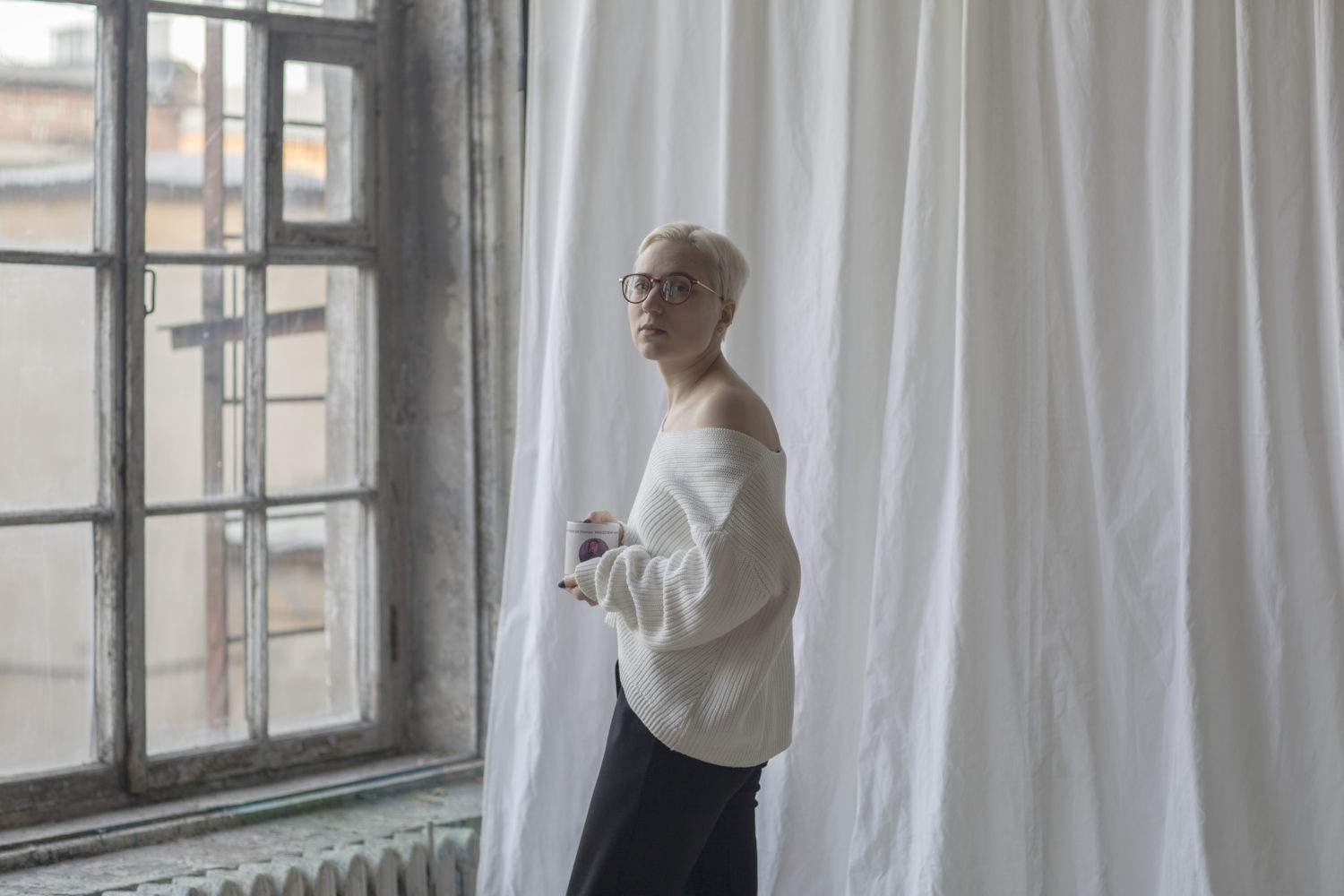
«For a long time I tried to prove to people that I was Someone, and then I realized that it was useless and that I did not need to prove anything. I accept others, I accept myself and I feel good about it».
«The first fear was that maybe I don’t consider myself a woman, maybe I have a different identity. I thought maybe I’m a trans man. Then I began to read a lot of literature related to transgender, gender teachings, and talked with other transgender people and non-binary people and tried to identify myself. I entered the LGBT school, which lasted 9 months. We were trained and conducted various training in sexology and human rights. After all that, I realized that I still feel like a woman. But the fear did not go away, I tried to decide on the orientation, but I still have not decided. And I don’t want to do anything about it. I know for sure that I am not asexual, but who exactly: lesbian, pansexual, LGBT, I do not know. Identity is a statement that is addressed to other people. By declaring my orientation, I give a signal to other people».
«My parents are divorced. For several years now I haven’t been talking with my father. He tried to impose patriarchal values on me and did not notice my emotional burnout. When I did not want to completely continue to fight and live, he said that I invented everything and that everything is fine with me. It was difficult for me to fit myself into existing norms. He tried to manipulate me with financial help, thus he wanted to attach and invest in me “false” values».
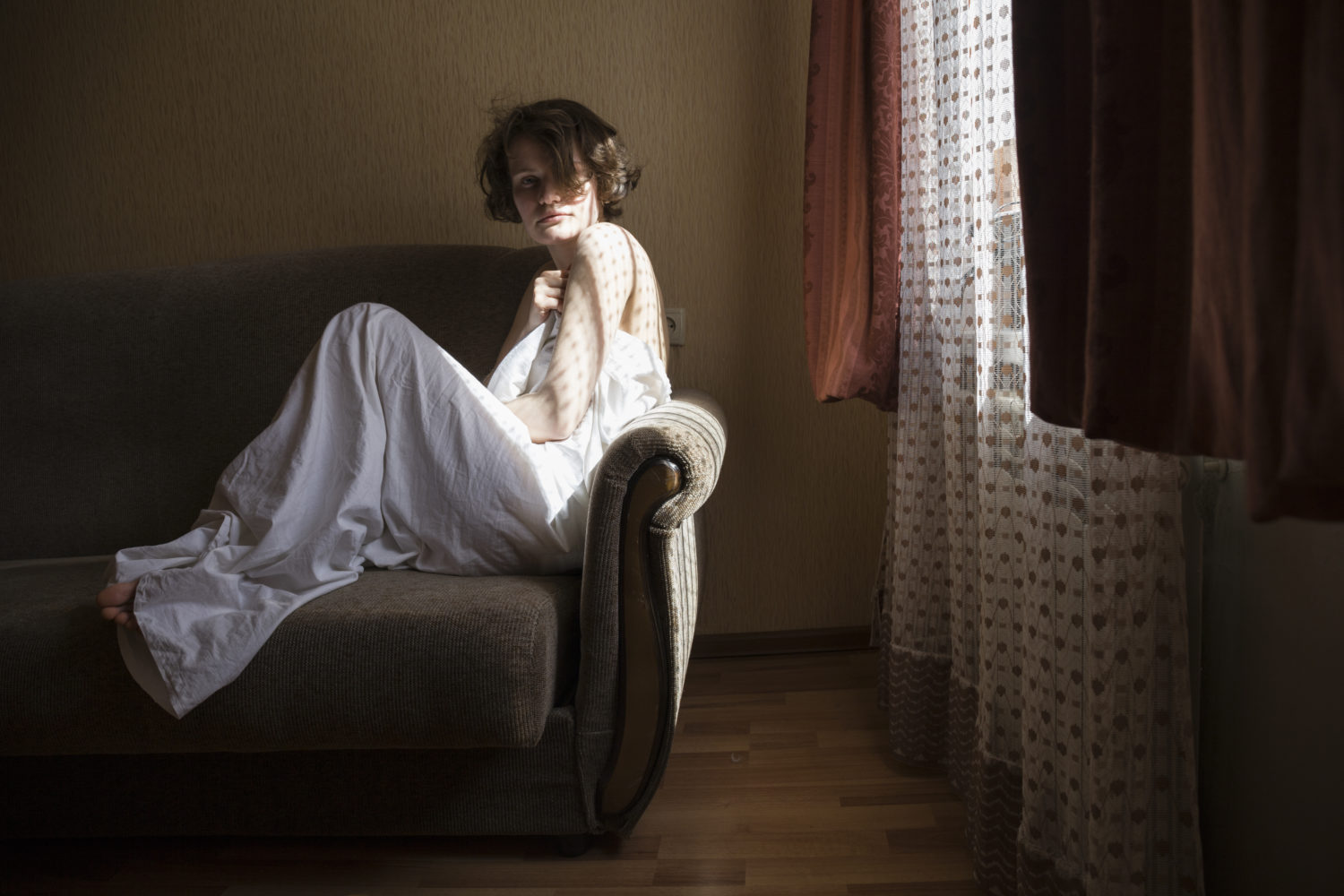
«My dad is from Dagestan, a Muslim region of Russia. After serving in the army he came to Saransk, Mordovia. There he married my mother, a Russian, and even a Christian. The first years of their life together were not easy since all the relatives of my father were against this marriage and did not accept my mother into the family. In Dagestan, it is customary that marriage is concluded only between Dagestanis. However, they have now been married for thirty years».
«The attitude towards girls and boys is different, as is their upbringing. Boys are cared for and cherished in childhood, and they grow up more often unstable and wayward. Since childhood, girls have been accustomed to housekeeping and domestic help; they are asked to do more. Girls’ freedom is also limited, they are not allowed to go out and walk alone. I do not agree that a woman should sit at home, raise children, and do household work when men leave to work in large cities».
«I am very different from my sisters because, at the age of almost thirty, I am not married and I have no children. I do not know if I will marry. Sometimes it bothers me, sometimes I just don’t think about it. Often people on the streets or strangers call me “young man” as if I am a guy. This does not offend me, but it seems that in order to designate your gender you need to use makeup and wear a skirt, even in modern society».
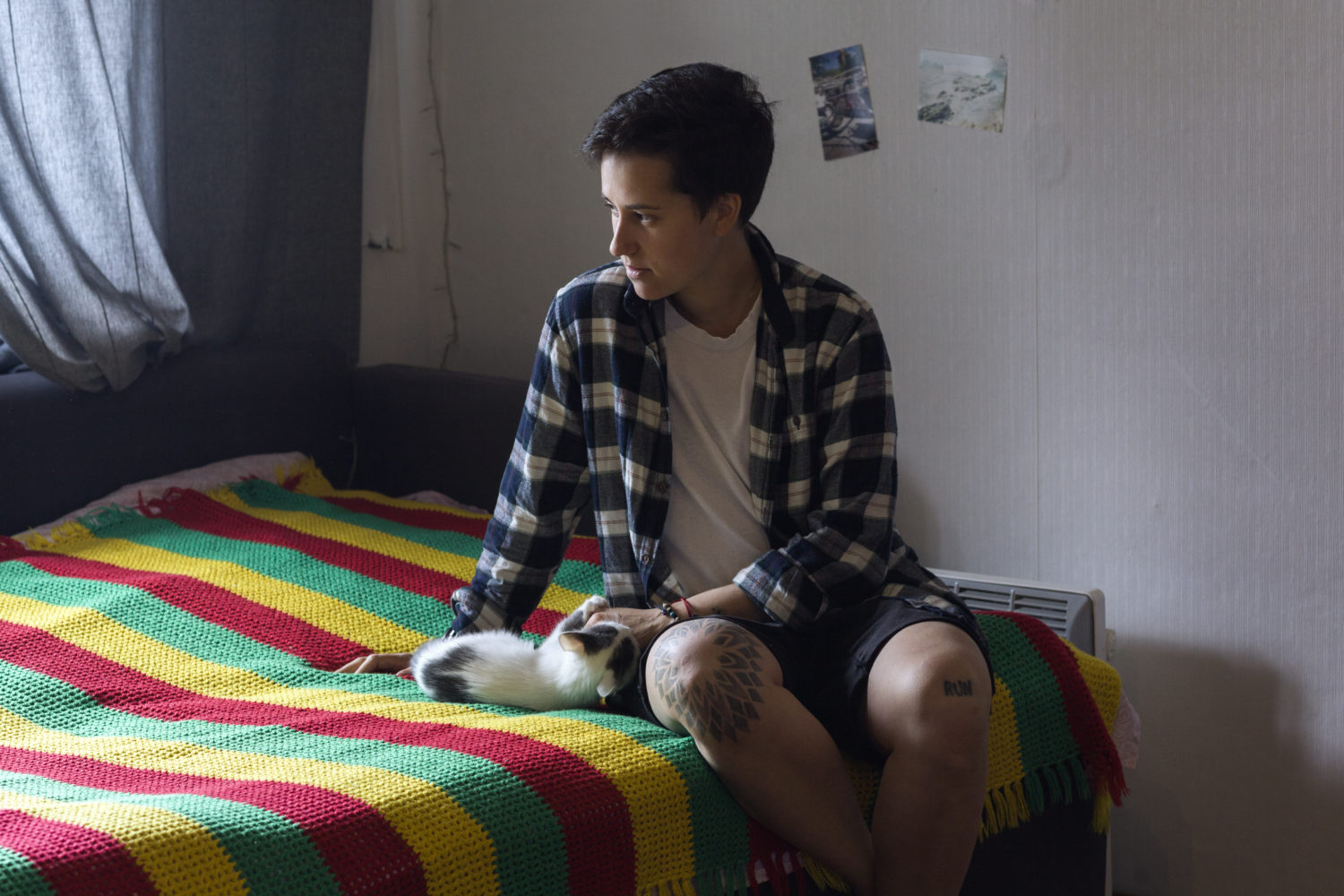
«Probably because I was born in a small town, I was always drawn to St. Petersburg. From my first visit to this city, I realized that I would live in it. Now I’m dreaming that I’ll live somewhere by the sea, where there is no St. Petersburg cold. Since the city is large, there are more opportunities to develop, communicate with new and interesting people who are not afraid to be different from others. It seems to me that it’s a bit easier to live with an unconventional appearance here. Although often when I go to the restroom, I hear: “This is actually a women’s toilet!”.
My recognition was held in tears, but not my mother’s tears (as I expected). I invited her to sit down at the table and blurted out “I like girls.” To this, she said with a perfectly calm face: “Well, good.” “Do you understand me for sure?” Mom, I like girls! ”I said in tears. “Well, yes, you’re a lesbian,” she said with the same calm face. My father does not know about my orientation. He left the family when I was six years old. Mom often says that my father’s departure influenced my orientation. I am not sure if this is true. My father has always been a rare presence in my life, even when he lived with us, he was not there.
«Mom takes the most important place in my life, she is always my support. She accepts me with all my mischief, stupidity, and mistakes.
«It seems to me that society in Russia is not ready to accept either the LGBT movement or people who differ from the standards imposed back in the Soviet Union. The elderly are especially bad at accepting changes; it is difficult for them to accept new views. The new generation is more understanding of people with non-standard appearance, to people who think outside the box. Among the younger generation, there are those who do not accept and do not understand those who are not like them. A complete renewal of the country must take place in order for tolerance to appear in Russia».
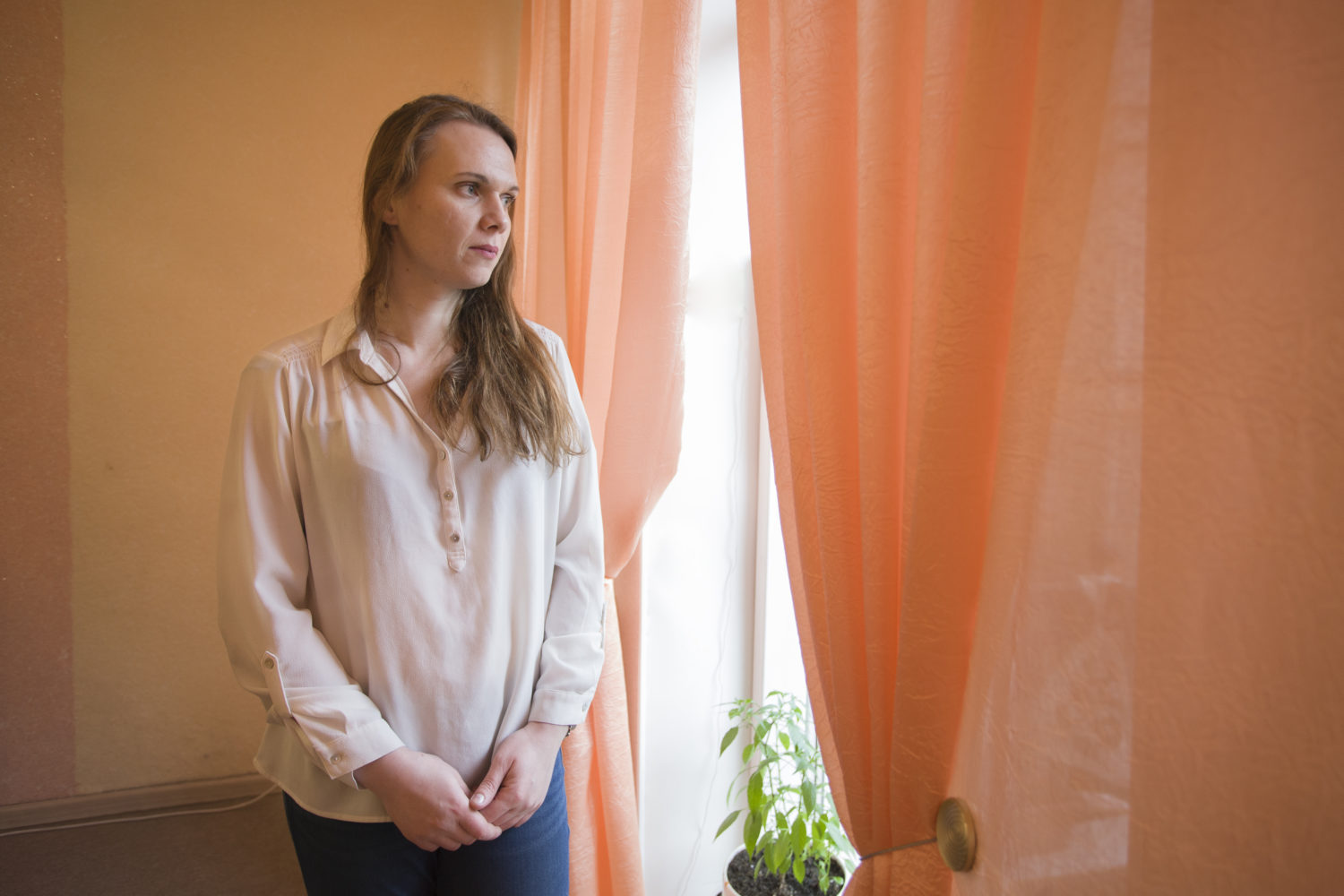
«I first understood myself as transgender at 25. The information at that time was completely different on this topic. I can’t attribute my experience to the most widespread one since in childhood I didn’t feel any prerequisites for this. I did not wear my mother’s clothes in childhood or anything like that. Maybe because my mother looked a bit masculine, I had a brother and no sisters, and I had no chance to feel it. There was one period of 12-13 years when I felt that something was going wrong, but it was too scary to share it with someone, it seemed to me that I had a split personality. I received information about transgenderism only at the age of 25. And subsequently, for 8 years, I took this information for myself. Because on the one hand, yes, it’s good that this is not schizophrenia or a psychological disorder, but on the other hand, I was socially in a favorable position: a white man with his wife and children, a successful career, and an established social life. And so it was scary to accept yourself. At first, I was a crossdresser, denied transgenderism, and so on. But over time, even cross-dressing ceased to help, so at around 30 years old I had a choice: drink a lot or start the transition».
At the time of 2008, I had a family: wife, child. Although now my family situation is more complicated. I have two children from my first marriage and two with my current partner, who is a transgender man. We have maintained relations with my ex-wife and remain the parents of our children.
« I write in my social networks various pieces of information that can be recognized as political at any time. Since we can recognize social networks as the media, then, accordingly, I conduct political activities in the media. There are many uncertain things, meaning that at any moment there is the possibility of pressure from the authorities. Until now, I have not interested the official authorities in my activities. But my open position and various statements can attract attention at any time. There are a lot of pressure levers. That is how we live».
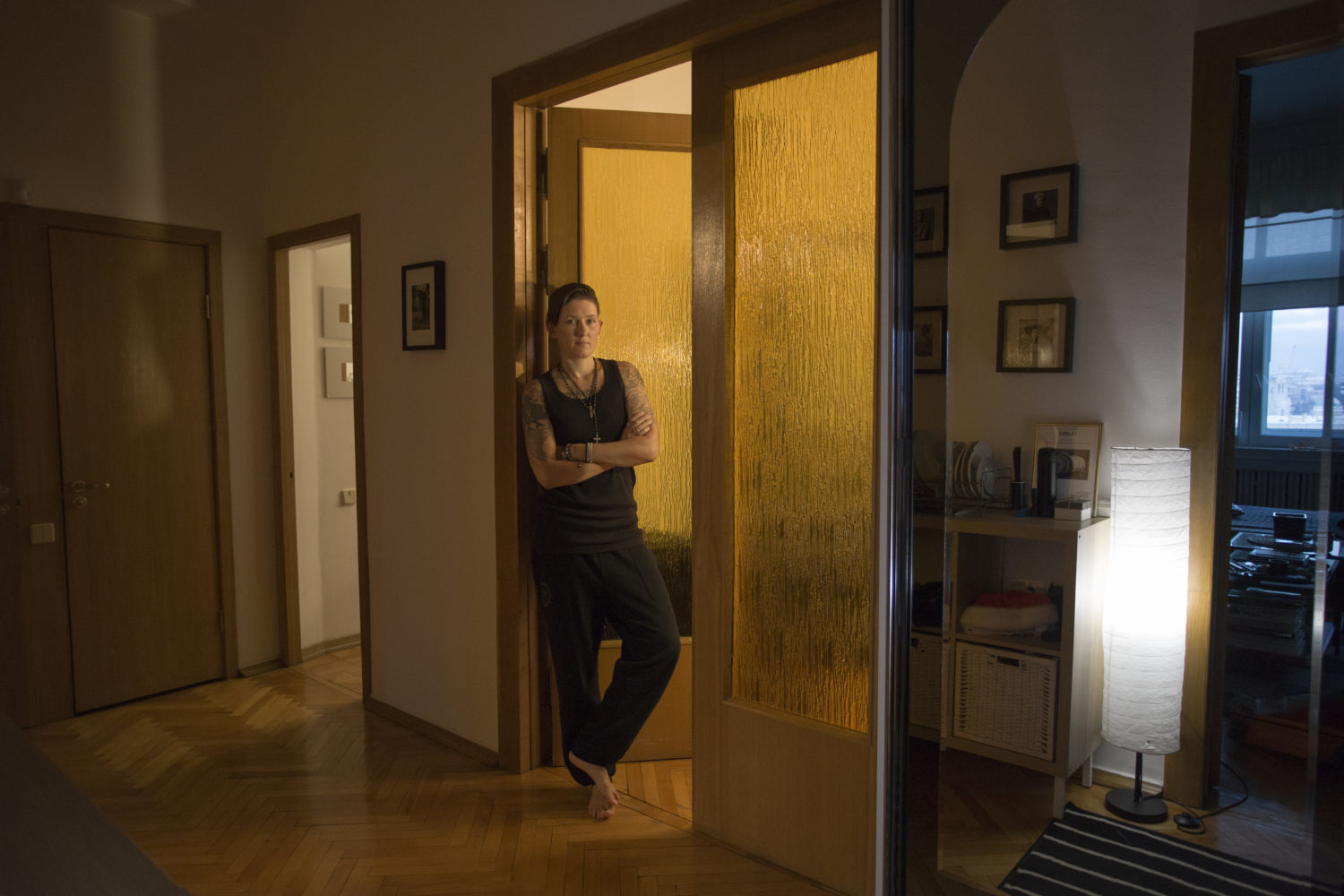
«My family is not very prosperous. My mother is a former teacher, she worked as a teacher in the Soviet era for 20 years, but in the 90s they reduced everything and she had to work in other areas, usually as a seller in shops. My father could not cope with the role of a parent and started drinking when I was 9, so at the age of 15, I already had full awareness and responsibility for the family, because my younger brother, without male authority, did not take to education. He was a difficult teenager, graduating from alcohol, to drugs, then prison. Now my family no longer has its men. If we talk about whether they knew about my orientation, my mother always knew, and always was a true friend and understood me, although it was probably hard for her to accept. When I told her how things were, she answered me: «Daughter, I love you very much and want you to be happy, and it does not matter with whom»! Father by that time was already in a bad way, and he was no longer up to confront it. So, my mom was my biggest support».
«My position in life is to live consciously and with my heart. As for orientation, it doesn’t bother me much in life that I love women. In our country, in principle, living is not easy and not only for people with non-traditional orientation. Now I live in Moscow, and this is like a small separate country within Russia. And here, of course, you feel a little freer, but there are plenty of aggressive people everywhere, both in the provinces and in this kind of free capital. In my youth, I encountered problems in society, for example, the parents of my friends forbade me to be friends with them. The moral pressure from the older guys, of course, was also present. Now I don’t remember the details, and indeed the feelings in this regard. Certainly, there were experiences and a thirst for changes in myself, to be like everyone else. Over time, somehow everything was aligned and realized. For all my conscious life, I personally have not come across a real threat due to my orientation. But there are stories of friends and acquaintances – about someone who was severely beaten, someone who was severely intimidated, someone is not now alive».
«Speaking generally about how people in Russia are perceived with a non-traditional orientation, I will answer this way: you cannot demand from society, from people, our still «soviet» society, understanding that there are such people. This is because in our country 30 years ago there was «no sex» at all. And now, in the 21st century, there is generally no sexual education. On the question of whether society is transforming, of course, it is changing and will change. The only question is – how soon? I think that in our country this is possible and will happen, but hardly soon. There are plenty of other problems in our country, and there is little «freedom» in principle».
«I am from apolitical people and just the same, referring to my life experience, I can say that the rights of people in our country (it is not important whether they are of traditional or of non-traditional orientation) are rapidly equated with their absence. Would I like to leave my country? – Yes, I would, but not because of my orientation. This is certainly not a priority. I’d like to live where people are more respectful, where there are no problems with medicine, where there is no total power and corruption, where it’s not scary to get old, where it’s not scary to give birth to children and where human life is valuable».
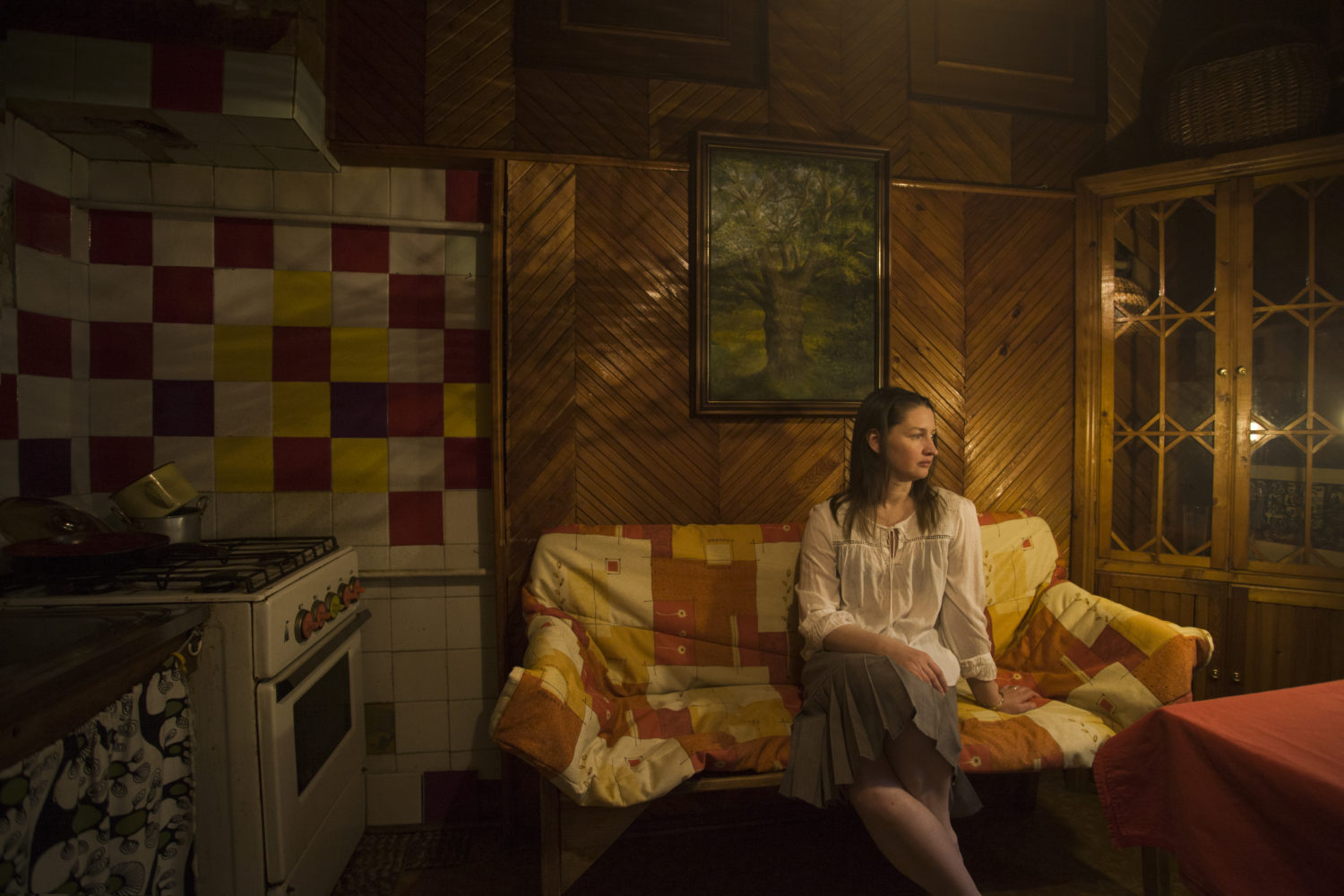
“I was born in a small town. As was expected, I married early and gave birth to two children.”
“I have been fond of art since childhood, but this was not taken seriously by those around me. However, I studied painting at an art school. It was believed that this occupation is not serious, that it is just a hobby, and that it could not be a profession. And then, they said to me: “You are a woman, you will marry, there will be no time for work.” In general, this was true. My husband supported the family; he had his own business. I wanted to develop, as the life of a housewife did not suit me.”
“We divorced. I decided to move to the cultural capital – St. Petersburg. It seemed that there I could start a new life because in big cities there are fewer prejudices. Even before the divorce, my husband bought a room in his communal apartment in his own name. A communal apartment is only a Petersburg phenomenon, they were rebuilt in Soviet times, from spacious noble apartments they made an average of five to six, sometimes ten rooms, with a shared kitchen and a bathroom. When we divorced, he allowed me to live there, since there was nowhere else to go. So I moved to a room of 12 square meters, where I still live. I also did not have any income at that time. At first, the children stayed with my ex-husband, while I was looking for work. It was hard to start all over again, with a completely different life, getting up on my own. But the desire to achieve something for myself and do what I loved did not let me go.”
“Over time, I got a job and brought the children to live with me in my room. There was no stable work, so I worked different jobs and painted to order. But it was all little money; I had to give the children to my ex-spouse to live in another city for months. I took up any work, and in my free time, I painted. It was hard. All my old friends thought that I made a mistake by leaving my husband and going to realize my dreams.”
“Periodically, I started relationships with men. I always looked for a companion; I like to be protected, and not think about financial problems myself, but to think only about art. But for a long time, it never lingered. I could not succeed in combining being a caring woman with my ambition. If some men were satisfied with my creative nature, they were not ready for a serious relationship. The others were attracted to me as the mistress, but not as the wayward artist.”
“At this time I created my own brand of accessories and have developed a corporate identity. I like to be one of those who, despite everything, are doing what they like. But often it is very difficult to combine with what was laid down to us in childhood. Of course, support from the family has never been in creativity. This is probably why I went away from home. Mom always wanted me to get married again, and maybe I wanted it myself. I wanted to be a woman, to be taken care of in the house. But life decreed otherwise, and now I am an independent artist.”
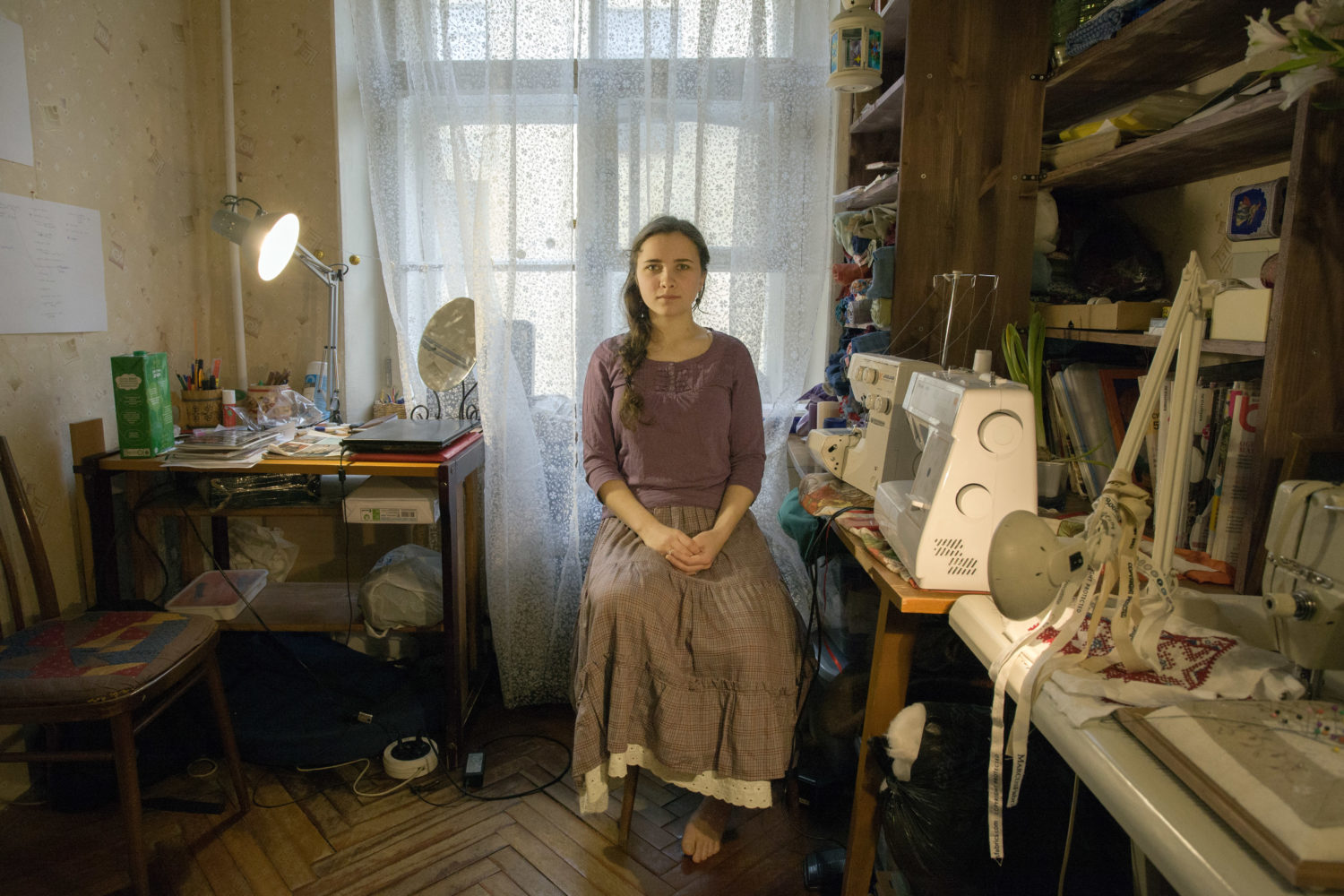
«I was born in St. Petersburg, but in childhood, we spent a lot of time in the Vologda region in the villages. In the village, we lived in a family home, large and wooden, which my great-grandfather built. Our life there was in the early 90s, a relatively hungry time. We were engaged in agriculture, growing vegetables, and crops. We always had chores. By the age of 12, I was able to independently heat up a large Russian stove and cook dinner. In the summer, city boys came to the village who were not burdened with anything, and we could not go for a walk until we watered the vegetable beds or finished other household chores. Our parents often left on expeditions, and since childhood, I have often remained only with sisters. Sometimes, we would only see our parents once a month. By the age of 18, I had come to the conclusion that I had to provide for myself. I always sewed, and after school, I went to study as a costume designer. I began to sew first for acquaintances, then take orders already. Most often it clothes with a traditional bias. Through this, I am realized as a woman, bringing beauty and positive emotions to the world».
«The female image for me is long hair, not too open, and wearing chaste clothes, long skirts, and dresses. A woman should cultivate a good character in herself, be educated, and monitor what and how she says things».
«I got married when I was 20 and my husband was 18 years old. Before that, we had known each other for two and a half years. Together, more can be achieved and realized even more powerful than individually. I give a lot of time to my business; therefore we don’t plan children yet. My husband helps me in the studio, which was a joint decision. And everything goes a lot more fun and faster together. In addition, he studies at the university, and also studies in the family folklore ensemble»
«People should know their history and traditions, but do not implicitly return to them. Initially, it was a peasant culture, and now, following it completely, while living in cities, is strange. Many changes are taking place, and the balance must be found in everything. There should be respect for the husband as a man, but this does not mean that his word is more important and he must be obeyed. The wave of feminism has brought many important points for a woman that cannot be denied. In family life, we always discuss everything together, we are equal as individuals. Yes, I rely on my husband, and often I give him the right to decide, but at the same time, I know that he will not make important decisions without me, regardless of my feelings and opinions. This is the key to a healthy family relationship. Also, I will not make any hasty decisions without consulting him».
